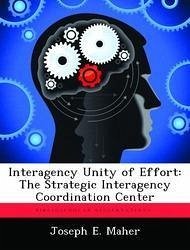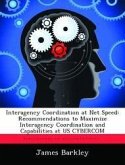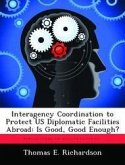Transnational terrorism, as well as other forms of international crime, affects domestic, regional, and global stability. The magnitude, geographical dispersion, and unknown relationships between various transnational threats are such that no one department, agency, or staff has the sufficient resources or expertise to comprehend and respond to all requirements. As our challenges are expanding in size and scope, so too, must our interagency processes be flexible, adaptive, and efficient. To that end, we must develop a system that provides responsive interagency intelligence and information to the appropriate federal departments and agencies. The system must be standardized and enforceable within the federal bureaucracy so as to enhance unity of effort, yet must never impinge on the authority of elected or appointed officials. A responsive interagency system that is proficient in both deliberate and crisis action planning is the only method of leveraging all appropriate government assets necessary to engage the full depth and breadth of our national security threats. The purpose of this research paper, then, is to provide an analysis of the interagency process at the strategic level-from the origins of its inefficiencies to recommendations that directly impact systemic faults.
Hinweis: Dieser Artikel kann nur an eine deutsche Lieferadresse ausgeliefert werden.
Hinweis: Dieser Artikel kann nur an eine deutsche Lieferadresse ausgeliefert werden.








